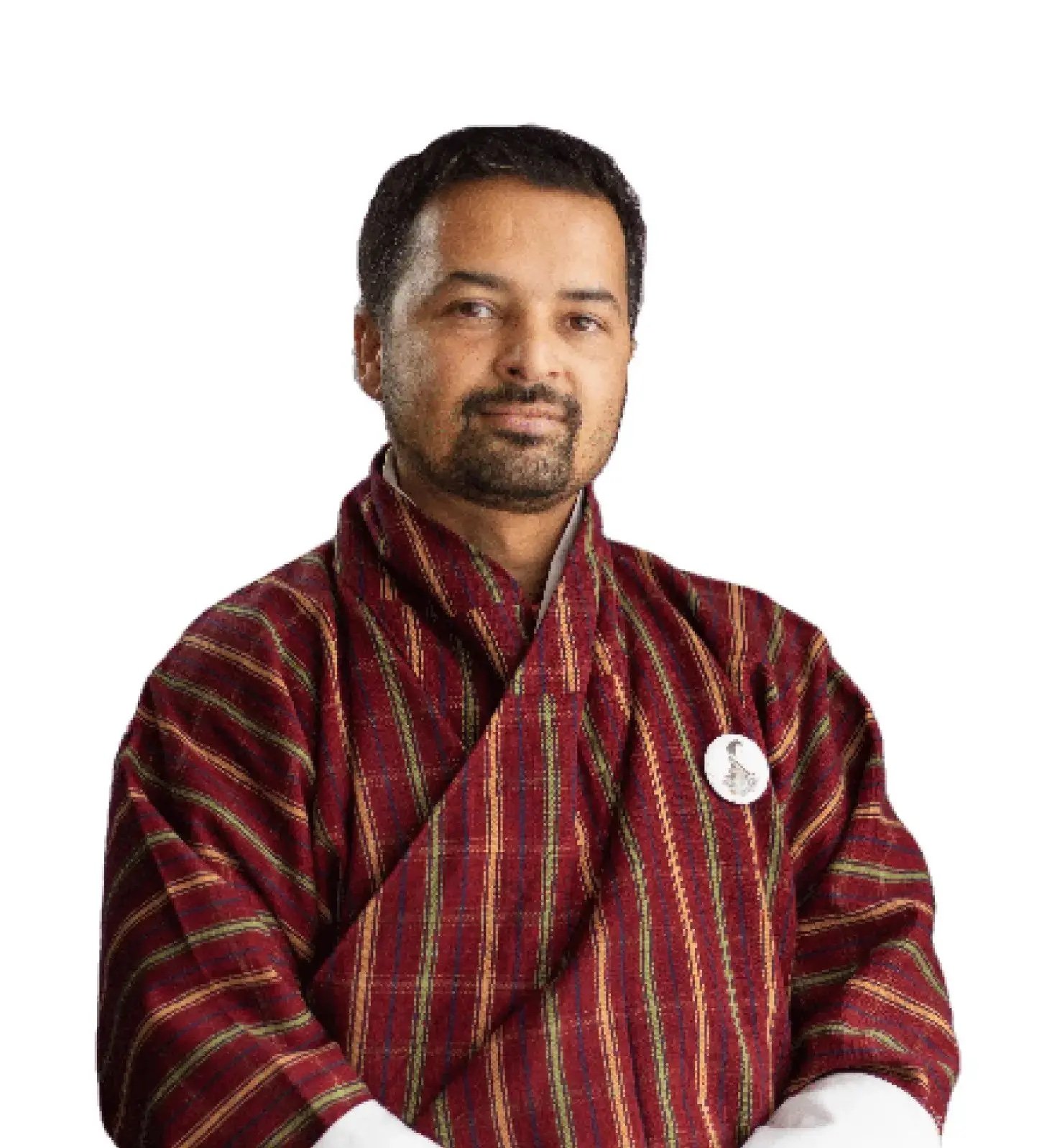Q&A - Ujjwal Deep Dahal
Bhutan is in the midst of a transformation, adapting technologies of the future rooted in its fundamentals. Guided by foundational change and agility, the strategic focus is rooted in a firm belief in Bhutan's potential to secure its future. A palpable sense of optimism underlies the evolution of the nation’s economic, social, environmental, and cultural development.


In the same ambitious spirit, FAB23 Bhutan aims to inspire communities within Bhutan and around the world to engage in Designing Resilient Futures. This theme taps into four key points of the transformative moment: economic opportunity; youth & education; technology; innovation, sustainability & community. To learn more about the role that these four focus areas play in Bhutan’s transformation and how they may be explored during the conference this summer, we spoke with Ujjwal Deep Dahal, CEO of Druk Holding and Investments (DHI), the commercial arm of the Royal Government of Bhutan. DHI’s InnoTech team—supported by such national and international stakeholders as MIT, the Fab Foundation, Bhutan Foundation, and the Royal Society for STEM—was instrumental in the creation of Bhutan Super Fab Lab, the third Super Lab in the world.
Fab Foundation: How do the four thematic pillars selected for FAB23 map to the changes that Bhutan is currently undertaking and the nation’s aspirations for its future?
Ujjwal Deep Dahal: Leveraging the exponential growth of technology globally, we’re focused on adaptation and development to solve problems that societies face in building products and services that matter. The challenge—or rather the opportunity—is to provide impetus to the economy while, at the same time, ensuring that we don't degrade the environment or lose the uniqueness of our culture.
We want to create a platform for the next generation of startups and talent to flourish as we also sustain and create opportunities for the traditional economy. As a progressive society, and to be relevant in the future, it is important to create a platform for the youth to contribute, keeping in mind the aspirations of the next generation. We endeavor to create the foundational platforms in Bhutan that ensure that the youth sees the opportunity to build a Bhutanese economy that is relevant, resilient, and sustainable.
The four pillars of FAB23 Bhutan—economic opportunity; youth & education; technology; innovation, sustainability & community—are essential, interconnected themes. The programs built upon these pillars, taken individually and collectively, will bring vibrancy to the conference and create momentum for action at multiple levels. FAB23 Bhutan challenges participants to reach out to the community, utilize technology to solve problems, involve academia and youth to build novel curriculum through fabrication, and to do this in a way that creates an innovation platform for the economy to grow. These will all be a part of the experience and the takeaways for everyone joining us in Bhutan this July!
FAB23 will be a chance to build a network of experts and share the experiences of other countries. This will be a meaningful contribution in the relevant evolution of the quadruple helix model of governance, academia, industry, and society.
Practically speaking, how might these ideas take shape during the FAB23 Bhutan conference?
We’re really looking forward to the Fab Bhutan Challenge—a grassroots innovation challenge, based on a set of fundamental questions: How do we use technology? How do we use data? How do we use tools such as machine learning and AI to solve real challenges that happen in the villages? Hopefully, this will bring in a much deeper connection to grassroots in Bhutan, so that students, individuals, innovators, and others in the village don't only experience technology being talked about at a very high level. We want to involve communities from around the world to really solve pressing challenges and provide hope in the villages that technology can solve problems.
We are also doing a student challenge, but with a different focus: How can we build curriculum around primary and secondary education, using digital fabrication? Working from the Fab Lab concept, we want to see new ways of developing teaching and learning methodologies, processes, and curriculum. And we want to involve kids directly.
What are some of the questions that you hope will be addressed and, possibly, answered during the conference?
How do we make Bhutan an innovation hub?
How do we sustain a cycle of technology development, involving the youth and the education system, to build upon economic challenges?
How do we make an economy perpetual and self-sustaining, rooted in sustained faster technological progress?
How do we do all of this while bringing in green and renewable energy?
Our thought process has been focused on how to build a sustaining startup ecosystem by creating knowledge through research and development, innovating on that knowledge, and creating products and services that matter to solve problems in society.
Druk Holding and Investments (DHI) is a partner in FAB23 Bhutan.
The commercial arm of the Royal Government of Bhutan, DHI was established in 2007 upon issuance of a Royal Charter "to hold and manage the existing and future investments of the Royal Government for the long term benefit of the people of Bhutan." DHI, the largest and only government-owned holding company in Bhutan, has shares in 21 different companies operating in the manufacturing, energy, natural resources, financial, communication, aviation, trading, and real estate sectors.